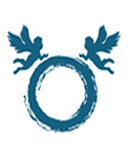Marriage of East-West Music on the Hudson |
Celebrating musical reconciliation at a place scarred by incredible pain requires a delicate touch and a musical tour de force if the result is to be convincing. New York's Absolute Ensemble and the Lebanese artist Marcel Khalifé took up this challenge.
Although this intercultural work was first performed in Bremen, Germany, in 2003, the live version released on CD by the German record label enja was recoded in 2007. Given that the idea behind the project was born out of the aftershock of the September 11 attacks, the location for the recording is highly significant: New York City Town Hall.
The objective of "Arabian Nights" was to bring Arab and Western music together in a coherent suite despite the enormous differences in musical parameters: quarter tones and scales on the one hand, western tonality on the other. The intention was to make understanding between the cultures not only an audibly, but also an aesthetically enriching experience.
The men behind the concert were predestined for a project like this. The saxophonist and composer Daniel Schnyder, a Swiss-American who was raised in Damascus, has plenty of cosmopolitan experience and is considered to be one of the open-minded creative talents in the modern jazz scene. He globalised the legend of William Tell in a quintet, turned Shakespeare's play, The Tempest, into an opera, and writes for both jazz ensembles and classical orchestras.
Schnyder worked out the concept for the suite together with the Absolute Ensemble. This chamber orchestra, which has twelve musicians and is conducted by Kristjan Järvi, has been walking the fine line that separates jazz, classical music, and world music on the Hudson for 18 years now.
Vivid metaphor of freedom
On the Arab music side of things, two virtuosos were involved in the project: like Schnyder, the Beirut oud player Marcel Khalifé has been crossing borders real and musical for years and can justifiably be considered the Lebanese counterpart to the Swiss-American.
Khalifé, a UNESCO Artist for Peace, is one of the "most complete" musicians in the Arab world at present: he has liberated oud music from its rigid corset and has in past recordings put the instrument into a broad and ever-changing context that is somewhere between symphonic tradition and bebop. Khalifé also composes for dance and film and has breathed new life into Arab song by putting the poems of Mahmoud Darwish to music.
Khalifé's compatriot Bassam Saba is considered a leading virtuoso on the ney flute, whose music he has taken far beyond the current Sufi trend and into collaborations with Yo Yo Ma and Herbie Hancock.
The cover enja chose for the "Arabian Nights" CD is a picture of a vibrant blue night sky over a desert. While at first sight, this image creates a false, cliché-ridden impression, the music itself soon dispels any misconceptions.










 Stefan Franzen, Qantara.de
Stefan Franzen, Qantara.de 
Post new comment